Filter by
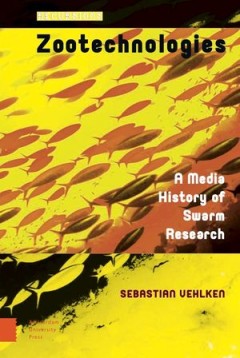
Zootechnologies A Media History of Swarm Research
Swarming has become a fundamental cultural technique related to dynamic processes and an effective metaphor for the collaborative efforts of society. This book examines the media history of swarm research and its significance to current socio-technological processes. It shows that the hype about collective intelligence is based on a reciprocal computerization of biology and biologization of com…
- Edition
- -
- ISBN/ISSN
- 9789462986206
- Collation
- -
- Series Title
- -
- Call Number
- -
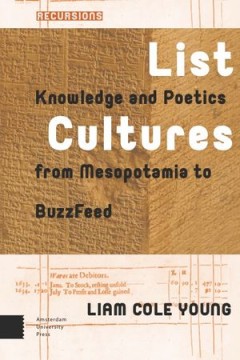
List Cultures Knowledge and Poetics from Mesopotamia to BuzzFeed
We live in an age of lists, from magazine features to online clickbait. This book situates the list in a long tradition, asking key questions about the list as a cultural and communicative form. What, Liam Cole Young asks, can this seemingly innocuous form tell us about historical and contemporary media environments and logistical networks? Connecting German theories of cultural techniques to A…
- Edition
- -
- ISBN/ISSN
- 9789462981102
- Collation
- -
- Series Title
- -
- Call Number
- -
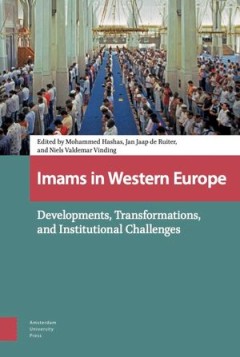
Imams in Western Europe Developments, Transformations, and Institutional Cha…
As European Muslims and Muslims in the Middle East diverge, imams in Europe have emerged as major agents of religious authority who shape Islam’s presence in Western societies. This volume examines the theoretical and practical questions concerning the evolving role of imams in Europe. To what extent do imams act as intermediaries between European states and Muslim communities? Do states subs…
- Edition
- -
- ISBN/ISSN
- 9789462983830
- Collation
- -
- Series Title
- -
- Call Number
- -
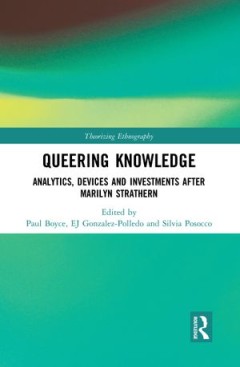
Queering Knowledge Analytics, Devices, and Investments after Marilyn Strathern
This volume draws on the significance of the work of Marilyn Strathern in respect of its potential to queer anthropological analysis and to foster the reimagining of the object of anthropology.The authors examine the ways in which Strathern’s varied analytics facilitate the construction of alternative forms of anthropological thinking, and greater understanding of how knowledge practices of q…
- Edition
- -
- ISBN/ISSN
- 9781138230989
- Collation
- -
- Series Title
- -
- Call Number
- -
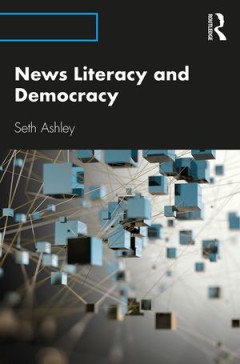
News Literacy and Democracy
News Literacy and Democracy invites readers to go beyond surface-level fact checking and to examine the structures, institutions, practices, and routines that comprise news media systems.This introductory text underscores the importance of news literacy to democratic life and advances an argument that critical contexts regarding news media structures and institutions should be central to news l…
- Edition
- -
- ISBN/ISSN
- 9781138625051
- Collation
- -
- Series Title
- -
- Call Number
- -
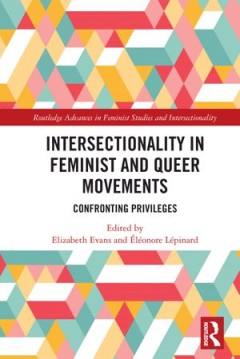
Intersectionality in Feminist and Queer Movements Confronting Privileges
Examining the ways in which feminist and queer activists confront privilege through the use of intersectionality, this edited collection presents empirical case studies from around the world to consider how intersectionality has been taken up (or indeed contested) by activists in order to expose and resist privilege.The volume sets out three key ways in which intersectionality operates within f…
- Edition
- -
- ISBN/ISSN
- 9781000741025
- Collation
- -
- Series Title
- -
- Call Number
- -
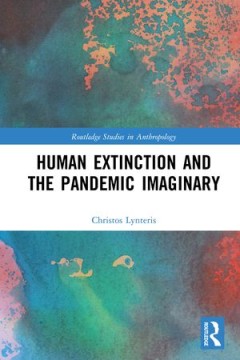
Human Extinction and the Pandemic Imaginary
This book develops an examination and critique of human extinction as a result of the ‘next pandemic’ and turns attention towards the role of pandemic catastrophe in the renegotiation of what it means to be human. Nested in debates in anthropology, philosophy, social theory and global health, the book argues that fear of and fascination with the ‘next pandemic’ stem not so much from an …
- Edition
- -
- ISBN/ISSN
- 9781000698886
- Collation
- -
- Series Title
- -
- Call Number
- -
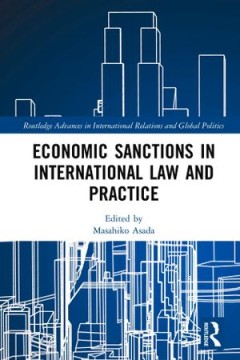
Economic Sanctions in International Law and Practice
Providing perspectives from a range of experts, including international lawyers, political scientists, and practitioners, this book assesses current theory and practice of economic sanctions, discussing current legal and political challenges faced by the international community.It examines both the implementation of sanctions by major powers – the United States, the European Union, and Japan …
- Edition
- -
- ISBN/ISSN
- 0429628013
- Collation
- -
- Series Title
- -
- Call Number
- -
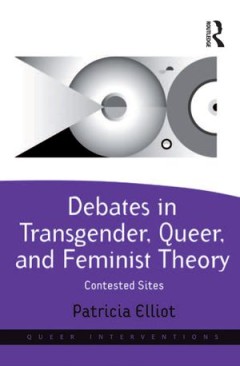
Debates in Transgender, Queer, and Feminist Theory Contested Sites
Transgender studies is a heterogeneous site of debate that is marked by tensions, border wars, and rifts both within the field and among feminist and queer theorists. Intersecting the domains of women’s studies, sexuality, gender and transgender studies, Debates in Transgender, Queer, and Feminist Theory provides a critical analysis of key texts and theories, engaging in a dialogue with promi…
- Edition
- -
- ISBN/ISSN
- 9781409403937
- Collation
- -
- Series Title
- -
- Call Number
- -
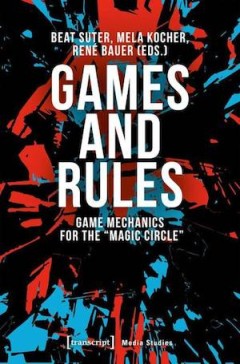
Games and Rules Game Mechanics for the »Magic Circle«
Why do we play games and why do we play them on computers? The contributors of »Games and Rules« take a closer look at the core of each game and the motivational system that is the game mechanics. Games are control circuits that organize the game world with their (joint) players and establish motivations in a dedicated space, a »Magic Circle«, whereas game mechanics are constructs o…
- Edition
- -
- ISBN/ISSN
- 9783837643046
- Collation
- -
- Series Title
- -
- Call Number
- -
 Computer Science, Information & General Works
Computer Science, Information & General Works  Philosophy & Psychology
Philosophy & Psychology  Religion
Religion  Social Sciences
Social Sciences  Language
Language  Pure Science
Pure Science  Applied Sciences
Applied Sciences  Art & Recreation
Art & Recreation  Literature
Literature  History & Geography
History & Geography